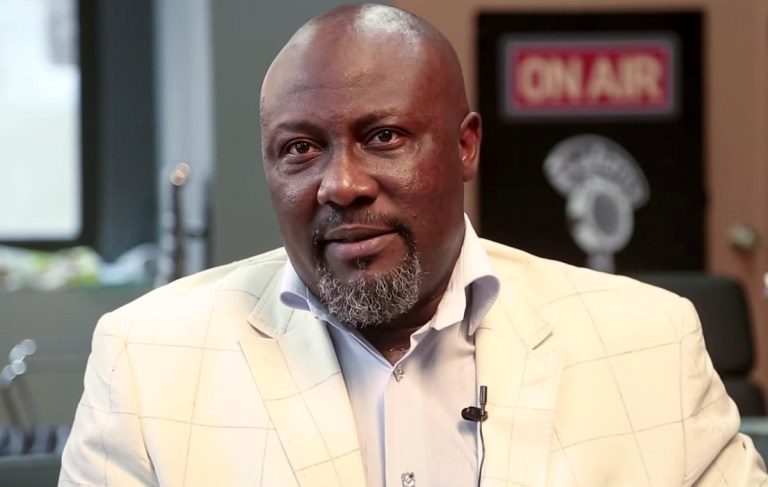It promises to ease mobility and stimulate commerce, reckons
ISAAC ADAMU
In a move that signals a transformative shift in Kaduna’s urban infrastructure landscape, Governor Uba Sani of Kaduna State recently met with Nigeria’s Minister of Transportation, Senator Sa’idu Ahmed Alkali, to fine-tune the framework for the long-awaited Kaduna Intra-City Light Rail Project. The high-level meeting, held in Abuja at the Federal Ministry of Transportation, marks a defining moment in the journey toward modern mass transit for the state. This latest development follows the major announcement by President Bola Ahmed Tinubu, who, during his one-day working visit to Kaduna in June, disclosed that N100 billion has been allocated in the 2025 federal budget to support the Kaduna Light Rail. The inclusion of this project in the federal fiscal plan is not just a symbolic gesture—it is a clear federal commitment to supporting sub-national infrastructure development under the Renewed Hope Agenda. As Nigeria continues to grapple with urban congestion, population growth, and inefficient intra-city transport systems, Kaduna’s light rail project stands out as a blueprint for how states can leverage both vision and collaboration to solve real transportation challenges.
Speaking after the meeting with the minister, Governor Uba Sani described the light rail as a “game changer” for Kaduna State. More than just a transit solution, he envisions the rail project as a catalyst for inclusive growth, promising to connect people and places, shrink commute times, reduce urban congestion, and unlock economic corridors that were previously inaccessible. “This is a transformative initiative by our administration,” Governor Sani said. “Once completed, it will position Kaduna as a foremost transportation hub in Nigeria. It will ease mobility for millions of residents, stimulate commerce, create jobs, and enhance rural-urban integration.” Sani’s vision is well-aligned with modern urban planning principles, which prioritize connectivity, sustainability, and accessibility.
In a state where a rapidly growing population has outpaced the capacity of its current transport infrastructure, the light rail system promises a future of organized and affordable mobility for residents. The Kaduna Light Rail Project is among several high-impact infrastructure initiatives earmarked in the 2025 Federal Budget. President Tinubu’s declaration of support is not just political, it is strategic. As part of his Renewed Hope Agenda, the President has consistently emphasized the importance of infrastructure in unlocking economic opportunities and improving the quality of life for Nigerians. Transportation Minister Senator Alkali echoed this sentiment, assuring Kaduna State of the federal government’s unwavering support. “This aligns perfectly with President Tinubu’s Renewed Hope Agenda, which places emphasis on modern infrastructure and sustainable urban development. The Ministry is fully committed to partnering with Kaduna State to ensure timely delivery of this critical project,” the Minister said.
Alkali also commended Governor Sani’s people-centered governance approach, describing the light rail initiative as an example of responsive leadership focused on long-term impact rather than short-term gains. The planned intra-city light rail system is expected to span major urban and periurban routes within Kaduna metropolis, linking densely populated neighborhoods with economic centers, markets, hospitals, universities, and industrial hubs. For a state that has served as a historical crossroads for trade, education, and governance in northern Nigeria, the return to rail-based mobility is both symbolic and practical. Here is what residents can expect once the project is fully operational: Reduced Travel Time. The light rail will significantly cut down commuting hours, allowing residents to move swiftly and safely across the city, thereby increasing productivity and quality of life. Likewise by improving access to commercial zones, the rail system is expected to boost trade, attract investments, and support the growth of small and medium-scale enterprises (SMEs). From construction to operations, the rail system is projected to create thousands of direct and indirect jobs, especially for youths and skilled workers.
Environmental sustainability is another gain of the ambitious project. With reduced reliance on cars and motorcycles, the project is expected to contribute to lower carbon emissions, helping Kaduna transition toward a more sustainable transport future. Safety and Reliability also comes to view. Built with modern safety features and operational protocols, the Kaduna Light Rail promises to offer a safer and more predictable alternative to chaotic road transport. The renewed federal backing and visible commitment from the Kaduna State Government have reawakened public optimism. Residents, transport workers, and business leaders in Kaduna have welcomed the project with hope.“We’ve waited a long time for something like this,” said Bashir Mohammed, a civil servant living in Sabon Tasha. “If it really happens, it will change everything — especially for workers who spend hours in traffic daily.” Market women, artisans, students, and the elderly also see the light rail as a democratic form of transport, one that will be accessible, affordable, and inclusive, regardless of income or status. Perhaps one of the most underrated but significant aspects of the project is its potential to bridge the gap between Kaduna’s urban and rural populations. As the rail system is expected to extend into peri-urban communities, it will bring healthcare, education, and commerce within reach of rural dwellers — reinforcing the Governor’s broader commitment to equity and regional integration. Governor Uba Sani’s proactive engagement with the federal government sets a compelling precedent for other state governors. Instead of waiting for federal intervention, Kaduna has moved forward with planning, advocacy, and budgeting — ensuring that the light rail project is not just a campaign promise but a policy reality in motion. The rail project represents more than just steel tracks and rail cars. It is a symbol of forward-thinking governance, a testament to what is possible when vision, leadership, and collaboration intersect. As the first rails are laid and construction begins, Kaduna State edges closer to a future where movement is no longer a barrier but a bridge — to opportunity, inclusion, and growth.
Adamu writes from Abuja

